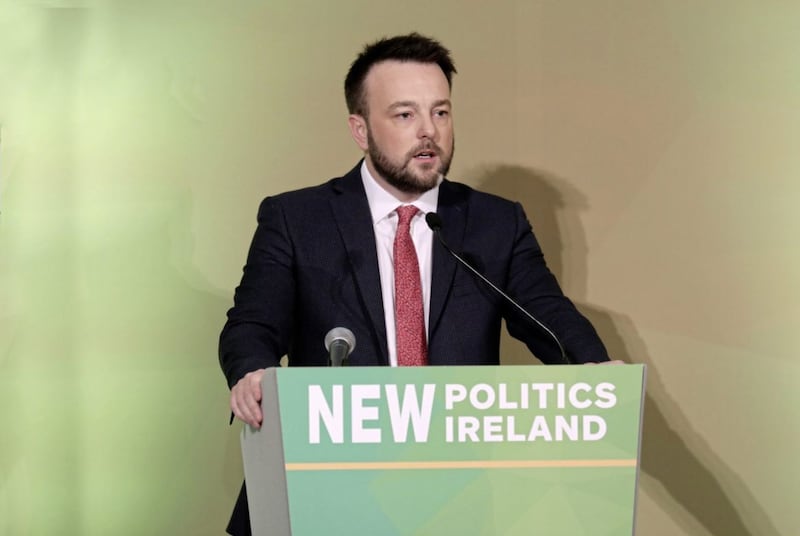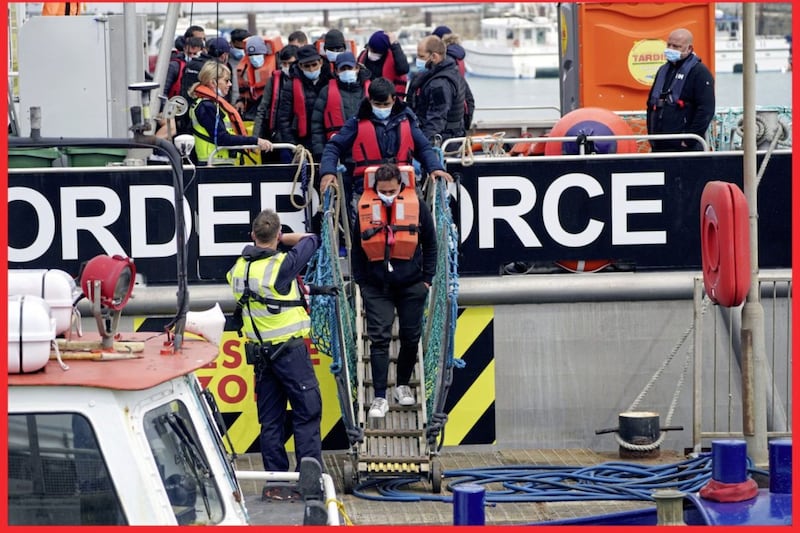IT is not a new phenomenon, but once again we are living in turbulent political times.
The elections in Scotland last week mean that the debates about an independence referendum will continue, and these will certainly influence discussions here in Northern Ireland about the shape of the Union in the medium and longer term.
And tomorrow sees the election of new leadership for the DUP against the background of deep disquiet about the implications of Brexit and the NI Protocol.
Adding to this maelstrom is the Ulster Unionist Party, which is once again looking for a new leader.
In contrast, last Thursday saw the relatively quiet and much less turbulent launch of an important new political initiative from the SDLP.
Its New Ireland Commission will, to use the party's own words, "seek to engage with every community, sector and generation on this island to build new proposals that can generate a consensus on our future constitutional arrangements".
I am not an armchair politician, a social commentator or a political activist, and have neither the capacity nor the desire to wear any of those hats.
Having made that clear, I am glad to say that the leadership of the SDLP was very much at ease when I set out my reasons for accepting their offer to be a member of the New Ireland Commission.
First of all, I am a Christian minister in an all-Ireland Protestant denomination - and since the wellbeing of all the people on this island matters to God, their wellbeing must matter to me, and indeed to all people of faith, whatever their political allegiance.
Secondly, Christian teaching is clear that Jesus Christ has no favourites in Brussels, London, Washington, Dublin, Belfast or anywhere else.
Furthermore, my clear reading of the Bible is that the health and prosperity of God's people is intimately bound up with that of wider society.
A key passage is from the Old Testament book of Jeremiah where God's people are captive, obviously much against their will, in a foreign land.
Yet they are told in clear and unambiguous terms to work for the welfare of all the people around them.
Christian teaching is clear that Jesus Christ has no favourites in Brussels, London, Washington, Dublin, Belfast or anywhere else
In the current fraught climate here in the UK and Ireland, where - to our shame - aggression and bad relationships are accepted as normal, that call to be a blessing to all those around us is a very appropriate one from more than 2,000 years ago.
A fourth strand of my reason for accepting the invitation is that the SDLP have made it unambiguously clear that they want the unionist leaders to set out the case for maintaining the Union in a coherent, compelling and consistent way.
This is absolutely essential so that the electorate know exactly what they would be voting for as and when a referendum may be called.
The lessons of Brexit have been learned. Catchy slogans may capture the prevailing mood at a moment in time.
Yet it is surely self-evident that they are no substitute for thoughtful, wide-ranging and balanced policies with the ramifications spelled out - both the upsides and the downsides - when long-term irreversible change is being contemplated.
This is a very wise starting point for any public debate.
Finally, as a committed Christian, I do need to say that my personal and primary identity is not rooted in politics.
Nobody, no matter how powerful or influential, should seek to live by politics alone, or even mainly by politics.
Jesus certainly did not, though he regularly challenged those in power. There is a higher, much higher, allegiance called for.

Good politics is massively important for a healthy democracy, but it is not a standalone vocation.
Political leaders are certainly accountable to the electorate, but they are also ultimately accountable to the God of the nations.
That is the key reason why high standards of public life really do matter. Shoddy politics won't count for much on judgement day.
I fully understand the hesitancy of some from my own background towards any discussions that might imply or actually lead to the dilution or even elimination of their very significant political and cultural identity.
The core difficulty of this position is that the discussions about the future of this island are already under way.
Those discussions and debates will inevitably change the social and political environment, and absentees will not have much in which to take pride as that change happens.
Jesus often had very difficult dialogue with political and religious leaders, but there is no occasion when he point blank refused.
It is clear that Church leaders will be asked to rise to the challenges the work of the New Ireland Commission will bring to them, directly or indirectly.
What role do they wish to have in what might well be quite divisive and polarising discussions on the possible unification of the island at some point in the future?
Given the history of this island, north and south, with its often close relationship between Church and state, what contribution do the Churches now see themselves as making over the longer term?
Do they wish to have any significant influence? If so, where and how much?
From my perspective the Churches will need to do good theology before they are in a position to give good answers.
But time is not on their side to do the work that is needed. So I plead with them to do it urgently.
It is much too late to start when policy is needed or decisions have to be taken.
Ireland has had a turbulent history for centuries. I consider it a huge privilege to be part of a group trying to think through many complex and potentially divisive issues, and to have been encouraged to bring an explicitly Christian perspective to the discussions.
I hope, with the Lord's help, to be up to the personal challenge involved.
Rev Dr Norman Hamilton is a former Presbyterian Moderator.








